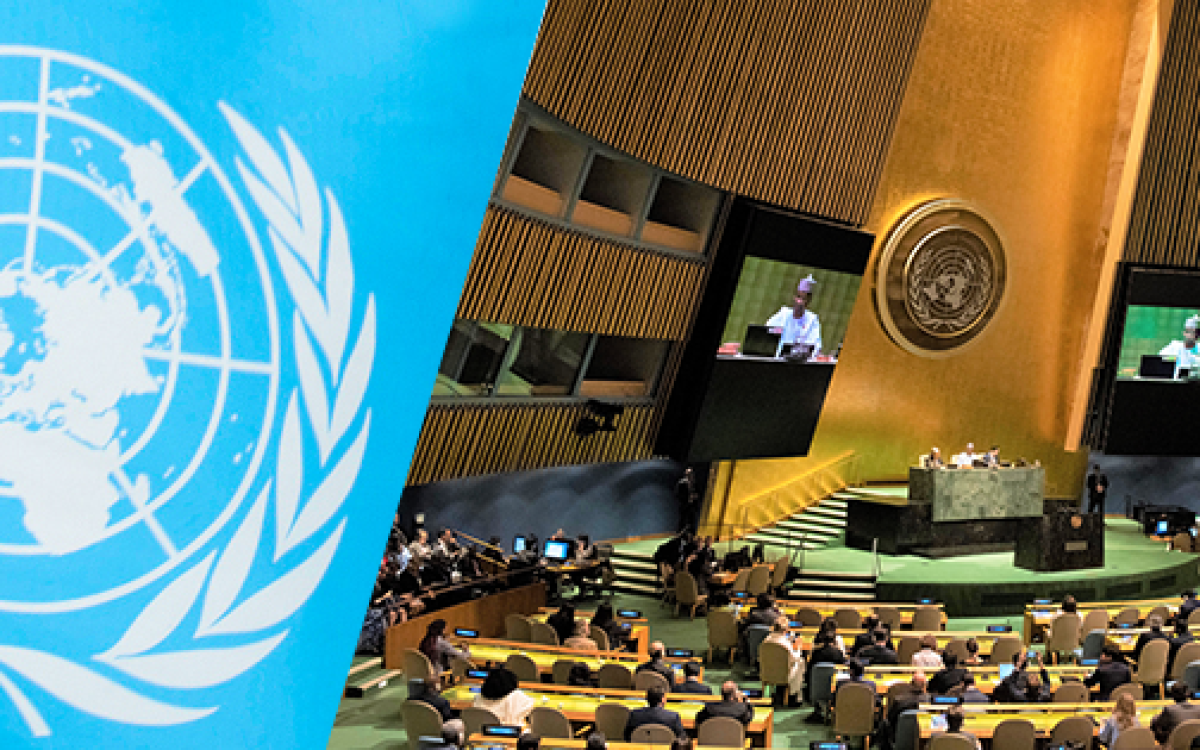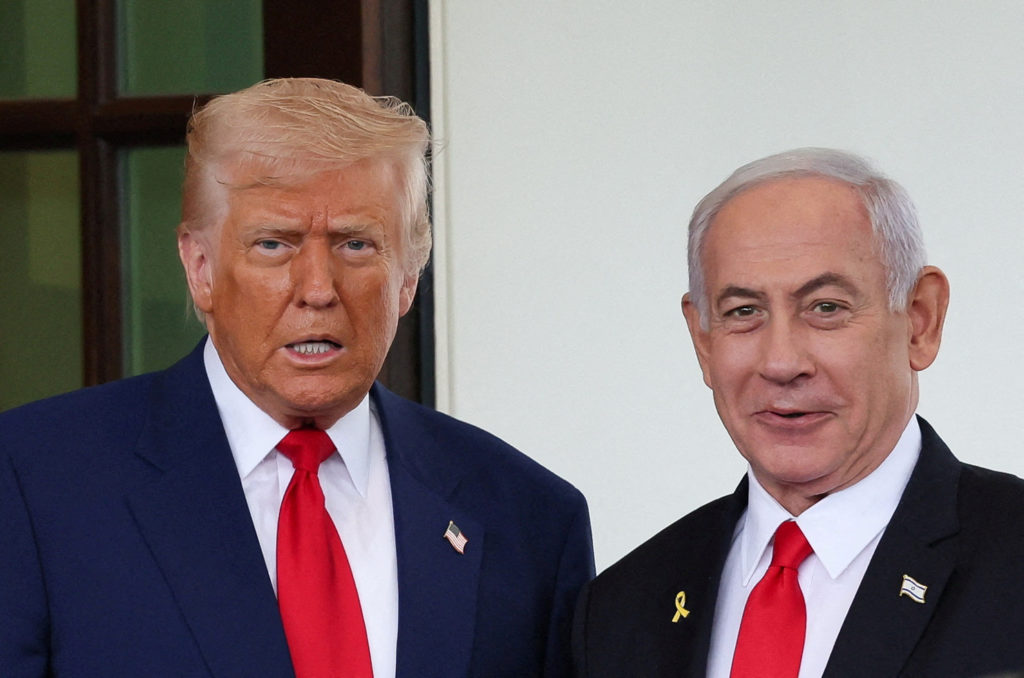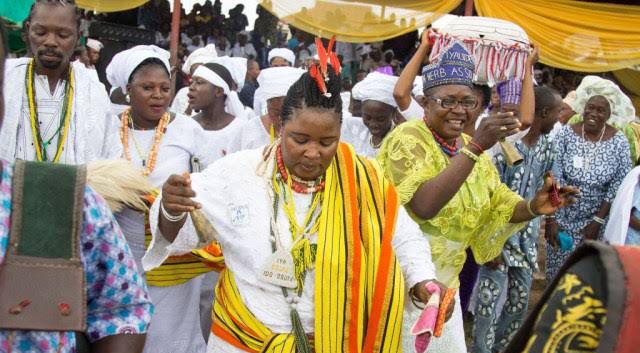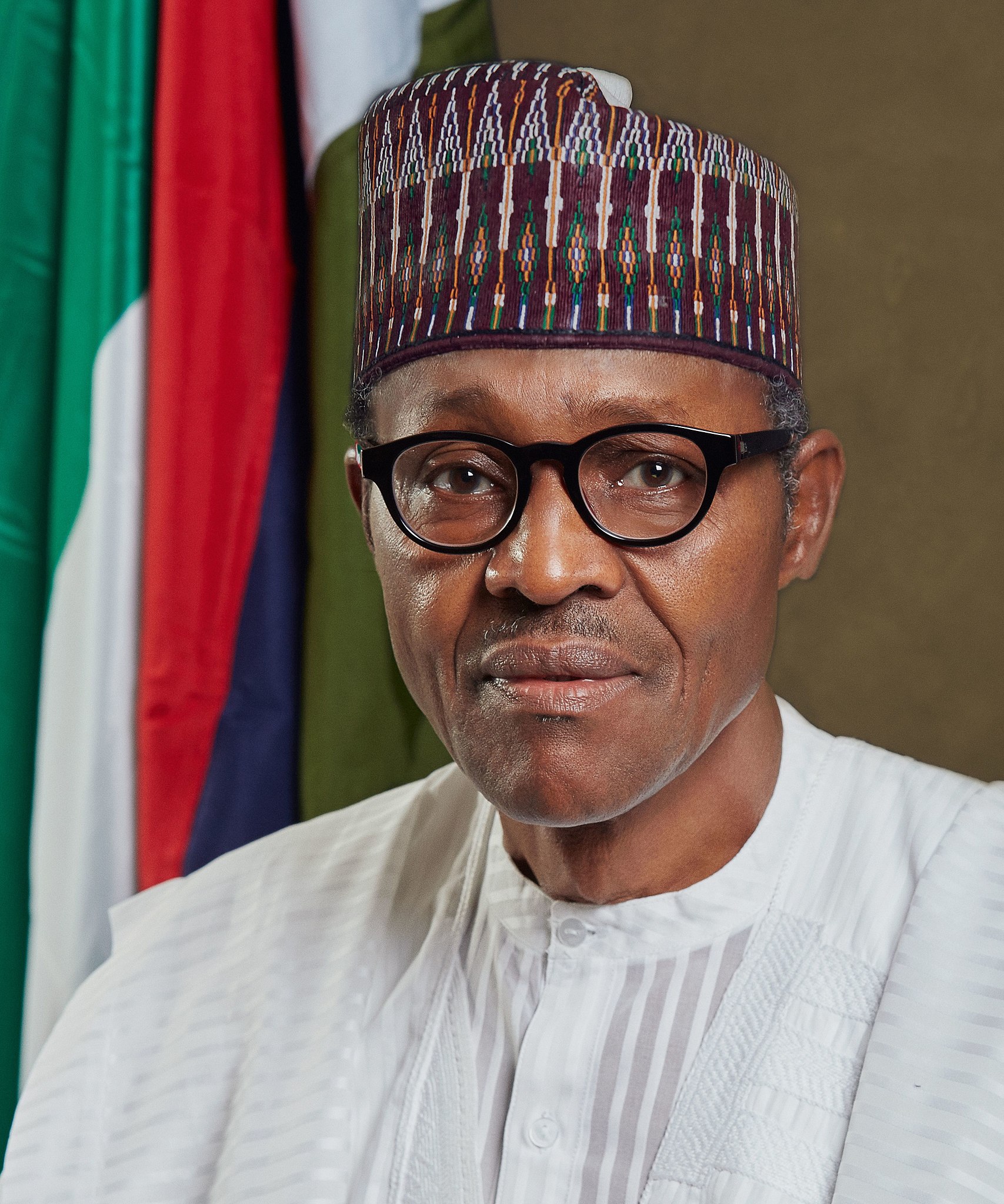 The seventy-sixth session of the United Nations General Assembly, which was held between September 14 and 17 in New York, and with the theme “Building Resilience through Hope” was an eyeopener to me as a first-time observer of this great annual event. It was significant to me in so many ways, one of which was the theme of the event which talks about hope. To my understanding, I know well that it is what hope sees that faith catches. That, in other words, means that hope becomes inactive without faith.
The seventy-sixth session of the United Nations General Assembly, which was held between September 14 and 17 in New York, and with the theme “Building Resilience through Hope” was an eyeopener to me as a first-time observer of this great annual event. It was significant to me in so many ways, one of which was the theme of the event which talks about hope. To my understanding, I know well that it is what hope sees that faith catches. That, in other words, means that hope becomes inactive without faith.
Apart from the topic, which serves as a driving force throughout the event, one very important thing I observed was the lack of trust among the participants, who happen to be representatives of the member countries that make up the United Nations. Hope was emphasized in the absence of faith and love, and that makes hope unattainable or illusive.
Remember that the United Nations is made up of both the developed and developing nations. Listening carefully and attentively to the submissions of almost all the nations, one key element that resonated with me was the absence of trust, and without which hope will forever remain illusive.
To sum up the content of my observations is the fact that all the member countries are unique with their differences and similarities. However, they all came under one umbrella seeking hope and resilience to overcome what can be described as contradictions. According to Robert H. Schuller, “all of life is filled with contradictions. There are also contradictions in international politics. Different countries have different ideologies, and still have to share this same globe. Contradiction also plays a major role in social development. They mould politics, policies, economy, and business. Here is another contradiction. You prepare for peace by being prepared for war. The people who want peace more than anyone else are the professional soldiers. A contradiction? Yes. Examine contradictions in history and how they brought us to where we are, some nationalities yearning for freedom throughout the law. The result was chaos, plundering, and killing. In yearning for order, they brought in a new ruling party just as repressive as the last. So we’ve seen throughout the world,. throughout the centuries, nations going from monarchy to anarchy to dictatorship to coups and on and on. Contradictions will never go away. Where they take us in the future depends on how we deal with them. Don’t resent contradictions. People who resent contradictions become very, very narrow. They resent anyone who has an opinion other than their own. It has to be their way; consequently, they don’t have open personalities. They clam up. They build relationships only with people who share their viewpoints. Do you know what happens in the process? They stop growing. People this narrow and isolated become judgmental. The only question they ask of others is do they agree with my viewpoints. Instead, they should be asking are they right or are they wrong, and will what they say help me or hurt me. So how do we resolve life’s many contradictions? Sometimes we need to convert others to our side, but most times we can compromise our contradictions creatively. We cannot deny contradictions. To ignore them may be the worst thing we can do. Instead we need to recognize, identify and define. We need to recognize contradictions as places we need to make corrections”.
Until the United Nations as an organization makes the issue of managing or compromising contradictions a matter of priority, peace in the world will forever be illusive. Almost all the nations that are referred to as developing had one thing or the other to say about their position with regard to the issue of trust. The majority of them are pointing accusing fingers to the United States of America as if the U.S. is the only country that makes up the United Nations. While some were accusatory, others followed the route of advisory. What they were all saying, using different words and terminologies, is that the issue of contradictions has to be settled once and for all.
Understanding that the United Nations was established just after the second World War in 1945, one would expect that at the seventy-sixth session of the U.N. General Assembly, trust should have been built to a considerable level that making reference to it should no longer be a norm or a welcome development among all the member nations.

There is no doubt that nations like the United States of America make wonderful promises that are in line with the United Nations Charter, which supports most especially the issue of human rights and the dignity of all people regardless of race, gender, religion, and nationalities. But to most of the developing countries, all these promises sounded to them as the usual things and the norm, which have always lacked the required actions to bring them to fruition.
The world is far from achieving the peace that is in dire need by all the nations of the world. It is clear and as was said repeatedly at the event that until we are all safe, no one is safe. In other words, until there is peace all over, no country of the world, no matter how strong, is at peace. This situation in the world makes one of the African sayings a dictum: “There is no standing or sitting possibility for him or her who swallows a mortar.”
COVID-19 incidentally was a major rallying point on which the wheels of the theme of the august event rotate. The pandemic ordinarily should serve as a wake-up call to the nations of the world that truly until all are safe, no one is safe, and this truism should apply to all areas of life that need to be covered by the activities of the United Nations if true peace will be in view.
What exactly are the major contradictions among the member countries of the United Nations, both the developed and the developing, is the pertinent question to ask. We know for sure that nations of the world have differences and similarities, but the two major contradictions, which I believe need to gain all the attention of this world organization, are those of race and religion.
Having said this, it is not to be oblivious of the important place that democracy as a system of government, which America believes strongly is the only system of governance that can best deliver dividends that meet, if not all, almost all the requirements of the Charter of the United Nations. In other words, suffice it to say that any country that practices any system of government other than democracy has already fallen short with regard to meeting the expectations of the United Nations, and to the United States of America that gives room for suspicion and worries.

So, on the issue of religion, the pertinent question to ask also is why is the act of terrorism from among the member nations peculiar with the countries who are predominantly Muslims or those who have the majority of the population as Muslims. Think of the terrorist groups that are prominent in the world today such as ISIS, ISWAP, and Boko-Haram. One cannot but appreciate their connectivity with Islamic beliefs. This is a serious area of concern and a contradiction, so to speak., On the other hand, and in relation to democracy as a system of government, countries like China, Russia and North Korea, including Iran, which happens to be a Muslim country also, are notable with nuclear weapons accumulation, which also is a matter of concern and worry to the United Nations.

Another contradiction? Yes. Until these contradictions are taken care of and creatively the world we live in will not know peace. Blame the United States of America for being so concerned about the issue of human rights and dignity of the people of the world? The stance of the countries that are expressing their religious beliefs to the extreme, so to speak, and those that are preoccupied with the accumulation of nuclear weapons is, to say the least, a source of concern not holding to the United States of America but to all peace-loving people and nations of the world.
Justifying their stance and activities, some have argued that the United States of America has failed to live by example with regards to the issue of racial discrimination and the accumulation of dangerous weapons of war. This also is an area of concern as two wrongs cannot make a right
Hope is needed among all the member nations, not only in wars but in action. More importantly, there cannot be hope where suspicions, intimidations, and extremism are on the increase. One important ingredient that is missing in the world that we are in today is love. Both Christians and Muslims believe that there is God, but have failed in one way or the other to live what they believe, for until God finds a prominent place in the affairs of men, peace will forever be illusive. At best, without God, what can be achieved is happiness but not joy; peace, but not perfect peace; and hopelessness. If truly we trust in God, then the trust that we have in God must spill out to reach our neighbors, for the essence of our being blessed by God is to be a blessing to others.The United Nations should live up to its responsibilities by going after the substance and not the shadow. It is time to connect humanity with divinity; for God, who is love, to reign.
Samuel ‘Tunji Adeyanju





